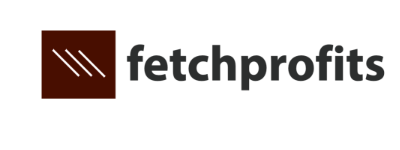Budgets aren’t infinite. It only helps if you follow a few Facebook ad budgeting tips.
Why, you ask?
Here’s one of the most frequently asked questions, in multiple variations:
“How much do I spend on my Facebook Campaigns? ”
“What should be my budget for Facebook campaigns?”
“What kind of budget do I allocate for FB Campaigns?”
There are two things you should know:
- Facebook has no minimum budget spend requirement. You can spend anything you want.
- Read the rest of the post.
Because our Facebook ads management is process-oriented and data-driven, the answer to that question is almost universal, as far as I am concerned: as low as you possibly can, and just as much needed to move the needle and to allow Facebook to deliver campaigns to your intended audience.
Start with Low amounts, Regardless of Your Budget
Why should you start with a low Facebook campaign budget, you ask?
- There’s no one in the world who knows whether or not your campaigns will work unless you actually run your campaigns.
- Assuming your Facebook campaigns start delivering and you get leads, you aren’t sure if that’s the best your campaigns can do.
- By optimizing your campaigns religiously and by doing A/B testing, you’ll be able to squeeze out even more from your campaigns for the same audiences, offers, and budgets.
- Everything — starting from ads to your email auto-responders — has to be tested to ensure that you have winning Facebook campaigns at your disposal.
- Even for winning campaigns, there are other problems that’ll surface such as Ad blindness, high frequency of delivery (that means that a single person is seeing your ads more often than one time).
Since you have so much to do, it’s always advisable to start with low budgets. When you have a winning combination of ads, landing pages, and email marketing sequences, you can scale up your Facebook campaigns.
Allocate Part of Your Budget for retargeting
It’s surprising just how many businesses, agencies, and freelancers who do Facebook advertising don’t bother with Retargeting.
Retargeting is something you just have to do for a variety of reasons.
- Not everyone who lands on your website or landing pages is not going to take action (80% of these visitors leave without doing anything).
- When you target your specific retargeting audiences, you’ll spend considerably less for your campaigns than what you’d spend for a regular Facebook campaigns.
- Retargeting campaigns fall in line perfectly with the much-effective strategy of trying to make offers or to sell to an audience that’s already warmed up and an audience that’s aware of your brand.
Note: You’ll need to build up an audience first to make retargeting campaigns work. Create custom audiences on Facebook (make sure your Facebook pixel is installed) with all your website visitors who visited your website (or specific high-intent pages such as your pricing page or products page or services page or your store).
Launch your retargeting campaigns after you’ve built up audiences of enough size.
Whatever you’ve chosen to spend on Facebook campaigns, take at least ¼ of that budget to allocate it for your retargeting campaign.
By doing just this, and by running a retargeting campaign parallel to your main campaign, you’ll be able to save hundreds of thousands of dollars in ad spend and get more leads (and hence generate more sales) in the long run.
Split Budget Further For Cross-platform Promotions
Let’s say you want to do advertising on Facebook but you also want to advertise on Google Adwords and Twitter Advertising, you’d then need to split your budget by that many platforms (+ Retargeting).
Let’s assume you decide to spend $1200 per month for advertising across Facebook and Adwords, then you’ll see that it plays out like this per offer or campaign:
- Main Facebook campaigns + Retargeting Campaigns
- Main Search-based campaigns on Adwords + Retargeting using Google Display Network
Alternatively, you can also use Adroll for retargeting instead of running separate campaigns on Facebook and also on Adwords.
I always recommend starting on one platform first and manage your campaigns that way. When one platform starts bringing you the results, you can always consider using another platform.
Note: Facebook campaigns are not “Intent-based”. Facebook is like a giant, forever-updating magazine with user-generated content. Adwords, on the other hand, is intent-based and your ads show up only when there’s an “intent” from the users’ end. Depending on your business, one of the two platforms (or both) might make more sense.
How do you manage your Facebook ad budgets? What are some Facebook ad budgeting tips you know of? What problems do you face when it comes to budgeting for your Facebook campaigns? Tell me all about it.
